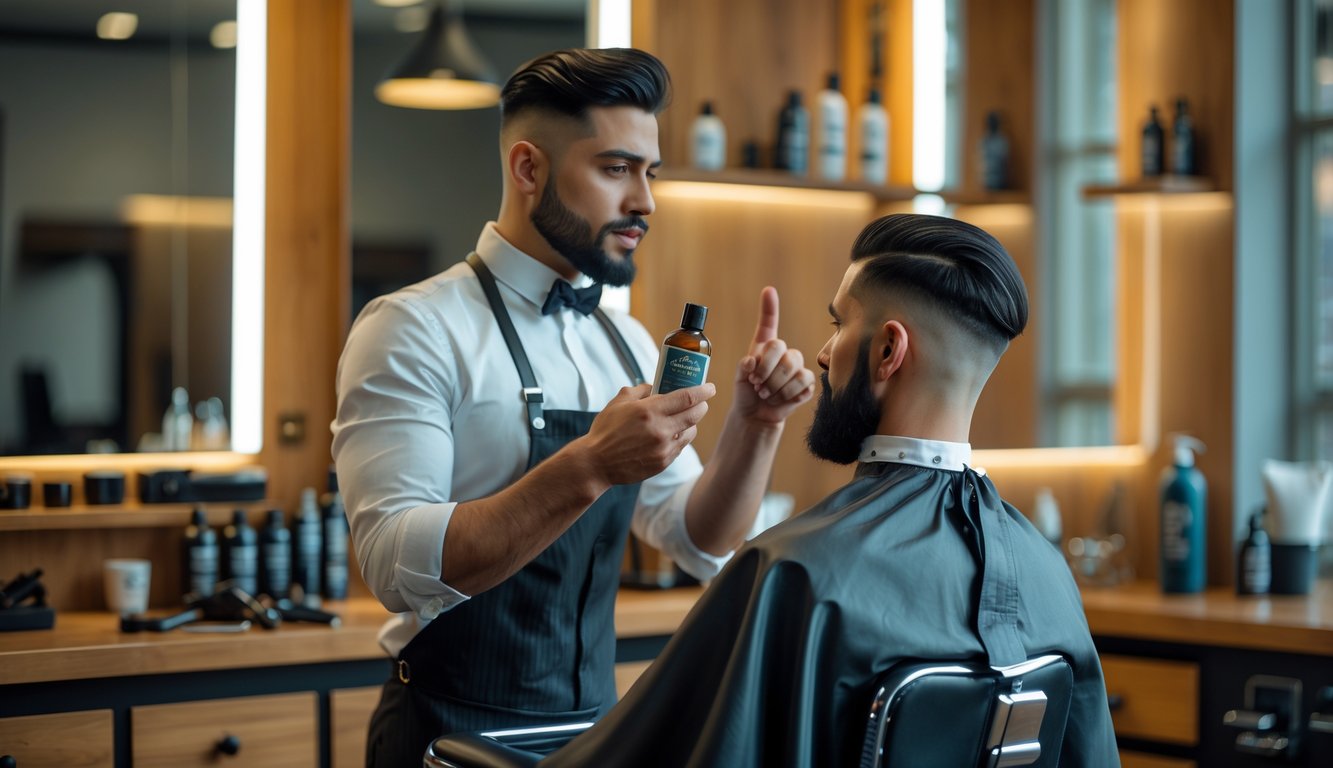
So, last week I’m standing in the drugstore, staring at this never-ending parade of “men’s” shampoos—every bottle yelling about “volumizing,” “revitalizing,” and, for some reason, charcoal. Since when is charcoal a hair thing? I counted at least three bottles promising “cooling” mint, “root activator,” and all that. And then I remembered my barber, who once gave my bottle the stink-eye and muttered, “That stuff just dries your hair out so you’ll buy conditioner.” He’s not wrong. Most of these “men’s” shampoos? Just loaded with harsh detergents and cheap fragrance. They strip your hair, then sell you the fix. It’s not magic. It’s just marketing.
Here’s what gets me: why do we trust labels with “sciencey” fonts and random claims when even actual dermatologists—like Dr. Jennifer Trent, who’s basically shouting into the void—keep saying gentle stuff like sodium cocoyl isethionate is way better for your scalp? And don’t get me started on those two-in-one shampoo-conditioner things. They’re just a way to make you feel efficient while your scalp quietly flakes away, so you’ll buy a “renewal” serum next. I’ve tossed so many “thicker hair” bottles, I’ve lost count. None of them did much except smell decent and maybe make my head tingle for five minutes.
My barber once pulled out a bunch of bottles and pointed out how they’re all made by three mega-companies, just with new stickers and slightly different promises. So, how many times do we have to fall for this? If you’ve ever stood in that aisle pretending to read the ingredients, wondering if you’re just cleaning your wallet, yeah—me too.
The Rise of Men’s Shampoo Scams
I honestly can’t remember when it started. One day I had a couple half-empty bottles, next thing I know, I’m getting bombarded with “instant hair regrowth” ads and the whole men’s shampoo thing feels like it’s gone off the rails. Guys grab some “fresh” two-in-one because it’s simple, but when did washing your hair become this weird negotiation with online scam artists?
How Modern Scams Target Men
It’s just wild—everywhere you look, there’s some new claim: anti-thinning, “all-natural” ingredients (which are, like, 12-syllable chemicals anyway). I found a site selling “Root Activator” for $40, bragging about “peer-reviewed science,” but when I checked, it was just influencers hyping it—one of them was literally my old roommate. Super scientific, right?
Men’s products bank on “simplicity.” Just one step, done. But what’s inside? Sodium laureth sulfate, “energizing menthol” (which just tingles, let’s be honest). And the scams are sometimes so lazy—fake before-and-afters, recycled formulas, subscription traps with fine print that’s impossible to escape. My barber told me a guy tried “filler shampoo” and ended up with more hair on his pillow than on his head.
And those reviews? Copy-pasted across a million no-name Amazon brands. Some dude claims his beard grew faster after switching shampoos. Wait, what? Why’s that even in a shampoo review? But there it is.
Why Shampoo Scams Are Increasing
Tech is part of it, but honestly, it’s not even the weirdest part. The men’s grooming market supposedly hit $80 billion in 2023 (Statista, if you care), so now everyone wants in. Search “hair loss” once at 1 a.m. and suddenly you’re drowning in “personalized” ads.
Barbers say the issue runs deeper than just ads. Big brands use fake-science jargon—“block DHT,” “micro-nutrient complexes”—and nobody checks. Influencer “reviews” are everywhere, half of them paid. Sometimes brands slap a white coat on a model and call it “dermatologist-endorsed.” I’ve tried a few of these “miracle” shampoos for laughs—labels don’t match, one gave me a rash (don’t recommend). “Lifetime guarantee” just means you’ll spend a lifetime trying to get a refund. And if you email customer service? Good luck. You’ll never hear back.
Spotting Signs of a Shampoo Scam
After talking to enough barbers, it’s obvious: it’s not just about flashy bottles or wild promises. Guys miss the warning signs all the time. I’ve watched it happen right at the checkout, reading labels that sound like Wi-Fi passwords. One friend, a barber for almost two decades, swears half the drugstore bottles are basically $3 dog shampoo with a “For Men” sticker and a 1000% markup.
Common Red Flags Barbers Notice
You want ridiculous? Try reading the fine print: Sodium Laureth Sulfate, “Proprietary Blend” (which means literally nothing). Alan, a Philly barber, says some brands just swap out fragrance and color, jack up the price, and call it a day. “Invigorating caffeine formula”? I checked PubMed—no real trials for most of these ingredients.
And those “barber-recommended” badges? They’re on everything from razors to sleep gummies. Ask about “clinical studies” and you get a QR code. Alan’s move: hold up the bottle and ask, “How much of this is just detergent?” If nobody knows, it’s probably a scam—or at least some serious marketing B.S.
How False Promises Mislead Consumers
My neighbor swore by a charcoal shampoo to “detox” his scalp—now he’s got dry hair and a bunch of empty promises. Labels love to scream “blocks DHT!” or “regrows hair in 2 weeks,” but unless it’s minoxidil or finasteride, you’re being played. Dr. Harris, a dermatologist, told me straight up: if it says “regrowth” and doesn’t have those, it’s a lie.
Manufacturers love buzzwords: “activates follicles,” “cleans at a cellular level,” “strengthens DNA.” What does that even mean? I clicked on one “lab research” PDF—just pretty diagrams, no real data. I’d bet most guys waste more money on these campaign promises than on any other dumb trend. Maybe even more than those magnetic bracelets.
And honestly, the scent sells more than any science—nostalgia, I guess. But nobody tells you how often these products cause flaking or oil overload, which, according to a Modern Mammals survey, traps over 60% of guys in the “shampoo cycle.” My dog smells better than my coworker now, so maybe someone’s winning here, but it’s not us.



